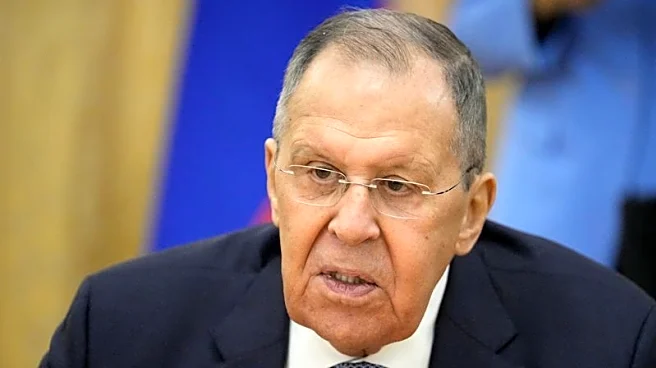Rapid Read • 9 min read
Mexican President Claudia Sheinbaum has firmly rejected any possibility of U.S. military intervention in Mexico, following reports of President Trump's plans to use military force against drug cartels operating in Latin America. Sheinbaum stated that while cooperation and collaboration with the United States are welcome, any form of military 'invasion' is completely ruled out. This response comes after a New York Times report indicated that President Trump had secretly signed a directive to target transnational fentanyl traffickers using Mexico as a base. The U.S. had previously designated the Sinaloa Cartel and other Mexican drug cartels as global terrorist organizations, which some analysts believe could lead to military action. Despite these developments, Sheinbaum emphasized Mexico's sovereignty and rejected the presence of U.S. military forces on Mexican soil.
AD
The rejection of U.S. military intervention by Mexico underscores the complex diplomatic relationship between the two nations, particularly concerning security and drug trafficking issues. President Trump's directive to potentially use military force against cartels highlights the urgency of addressing the fentanyl crisis, which has had severe impacts in the United States. However, Mexico's refusal to allow U.S. military operations on its territory reflects concerns over national sovereignty and the potential for escalating tensions. This situation could affect bilateral relations, trade, and cooperation on other critical issues such as immigration and arms trafficking. The decision also raises questions about the effectiveness of unilateral military actions in combating drug cartels and the need for collaborative international strategies.
While President Trump's directive suggests a readiness to take military action, the actual implementation of such operations remains uncertain. The U.S. may need to explore alternative strategies for addressing the drug trafficking issue, possibly through increased diplomatic efforts or enhanced cooperation with Mexican authorities. Mexico's stance indicates that any future actions will require careful negotiation to avoid damaging the bilateral relationship. Stakeholders, including political leaders and civil society groups, may push for more comprehensive approaches to tackle the root causes of drug trafficking and improve cross-border security measures.
The situation highlights broader ethical and legal implications regarding the use of military force in foreign countries. It raises questions about the balance between national security interests and respect for sovereignty. Additionally, the designation of drug cartels as terrorist organizations could set a precedent for how international law addresses non-state actors involved in criminal activities. Long-term shifts may include changes in U.S. foreign policy and defense strategies, as well as evolving international norms on military interventions.
AD
More Stories You Might Enjoy











